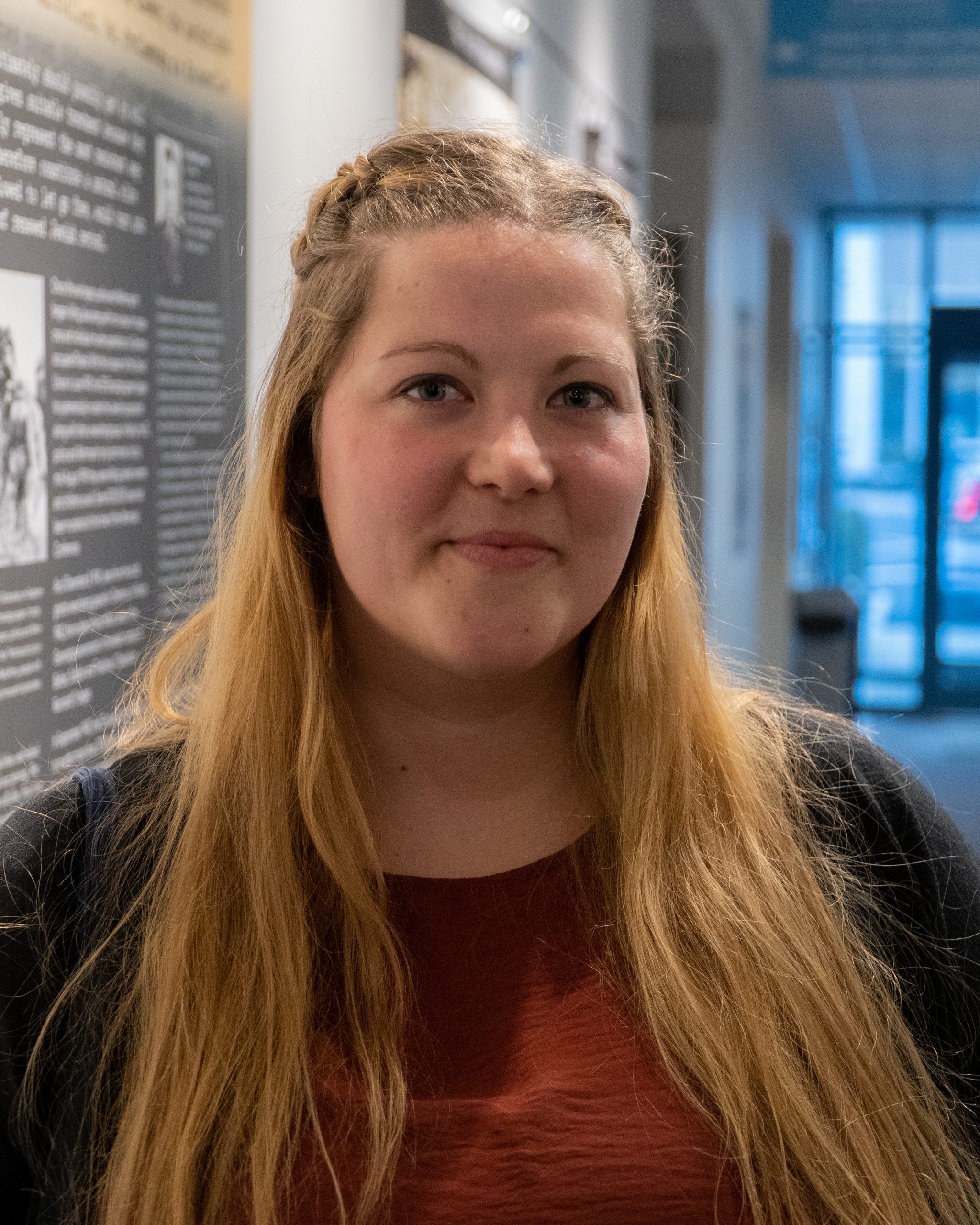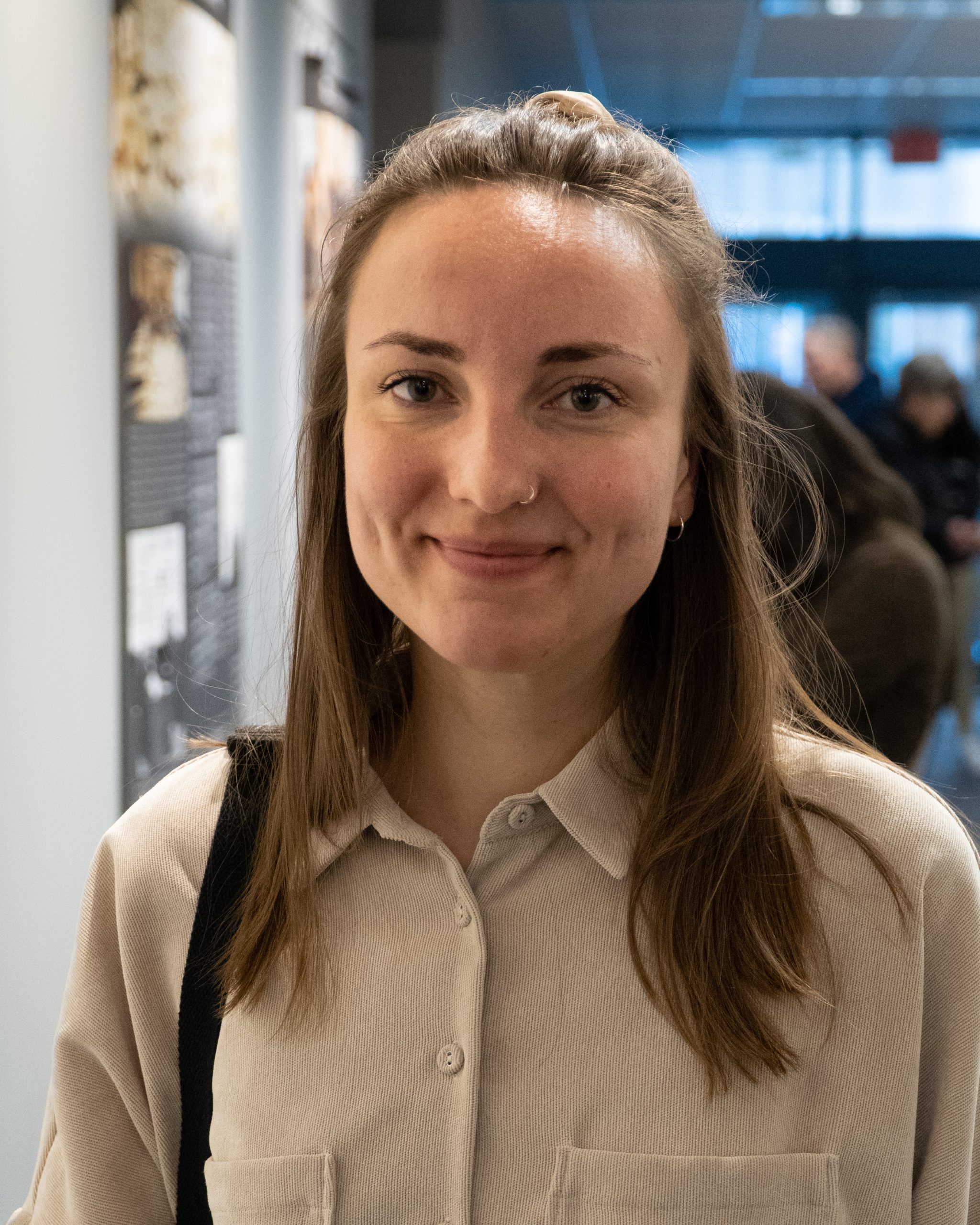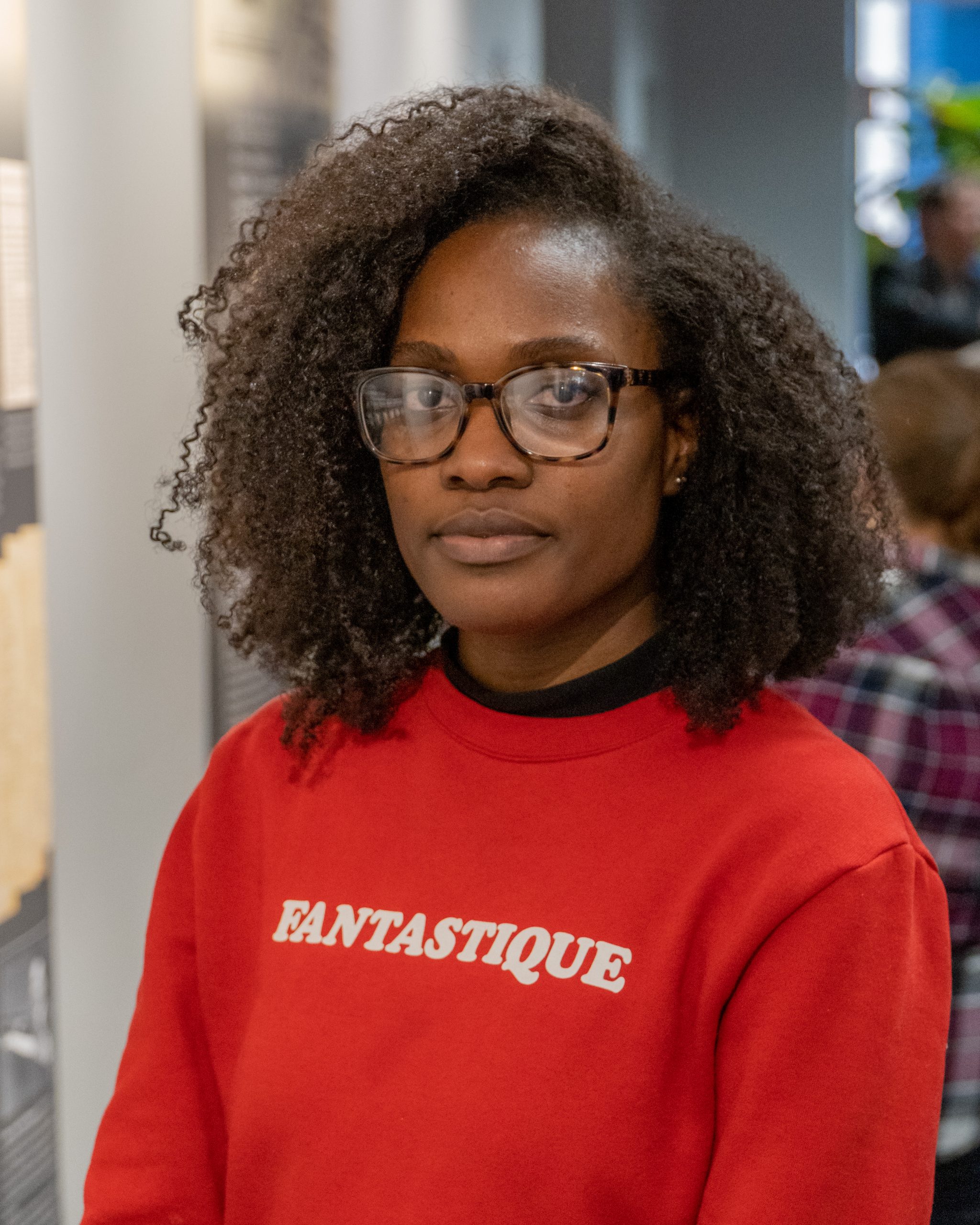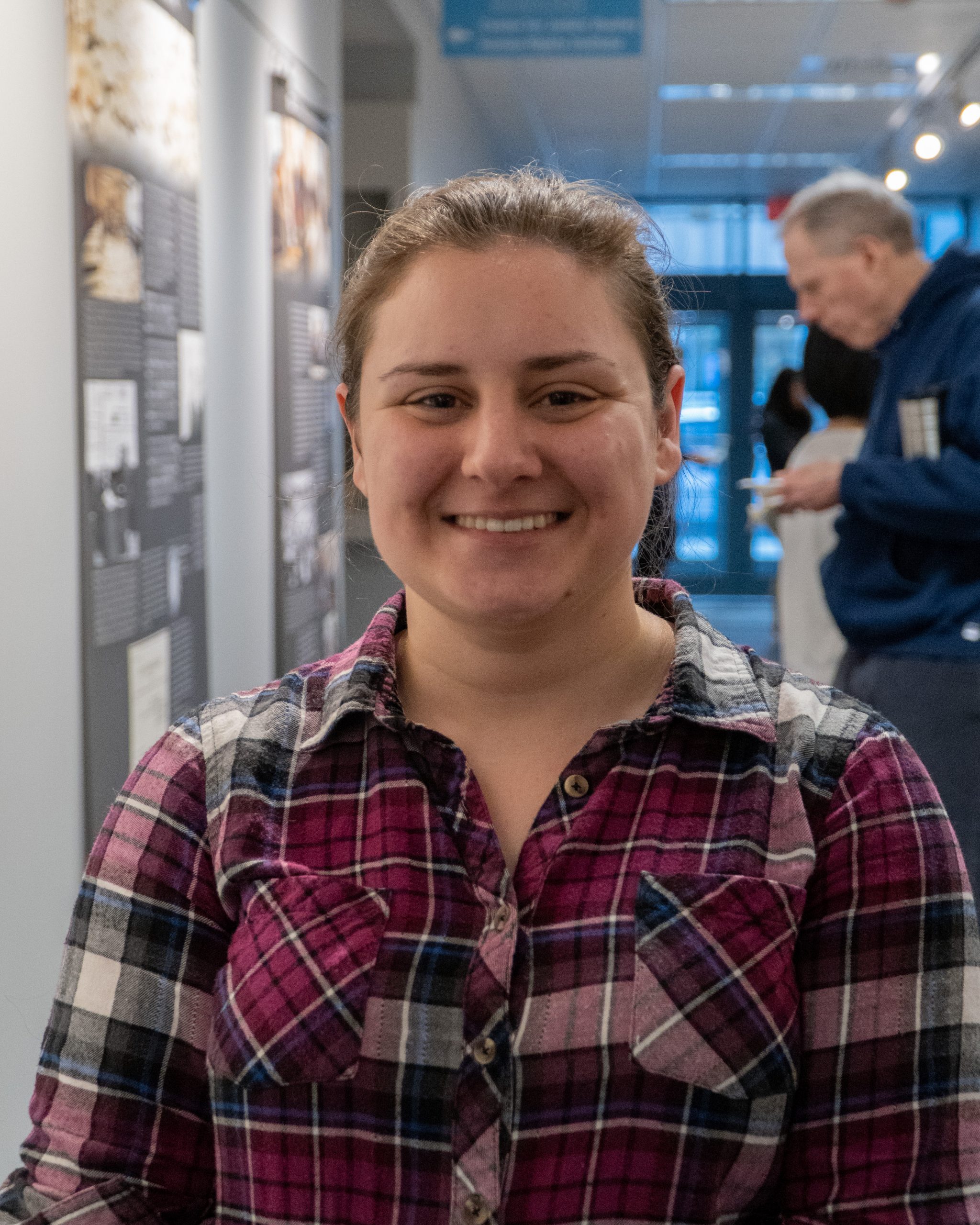Implications of the Holocaust
German Travel Study
Written by Nicholas Hampton, Multimedia Project Specialist
March 5, 2020
The University of Connecticut School of Social Work is a national leader in graduate social work education. They are the first public university in Connecticut to offer a bachelor’s, master’s and doctoral degree in social work. Students can study international social work and human rights, social and health disparities, diversity and cultural competence, and many other areas of distinction.
This spring semester nine students were part of the Germany Travel Study course taught by Associate Professor Lisa Werkmeister Rozas, Ph.D. The students spend their time at the UConn School of Social Work and the main Storrs campus as well as in New York City and 10 days in Germany* to develop a fuller understanding of human behavior, social policies, ethics and values, human oppression and human rights through American and international perspectives of the Holocaust. Students from the University of Applied Science in Dusseldorf, Germany also have the opportunity to spend 10 days in the United States
The program is made possible by funding from the Zachs family to educate SSW students around issues of anti-semitism, Holocaust, and other issues pertaining to Jewish life.
“The students are able to receive a stipend that helps them pay for part of the travel cost,” Werkmeister Rozas said. “Without it, it would not be affordable for our students.”
The following interviews were conducted March 2 while the students attended the opening of the traveling exhibition “The Wannsee Conference and the persecution and murder of the European Jews” in the Thomas J. Dodd Research Center.
Shamika Smith, University of Connecticut, U.S.
Why were you interested in this program?
I think that for me it provided an opportunity for partnership. It’s been cool to learn about some of the things the German students have brought to the UConn School of Social work in terms of their experience of what they’re going through in their country compared to the United States.
What are you hoping to get out of this program?
For me it’s a continuation of learning and exchanging of ideas. And continuing collaboration between the schools.
What has been the best part of your experiences so far?
We did many different events thus far and it’s been really educational. The UConn School of Social Work is located in Hartford Connecticut so the German students have a great opportunity to come and learn about what Connecticut has been doing and also some of the programs that we have within the Hartford branch and what they’re doing for the community there.
Emily Duszlak, University of Connecticut, U.S.
Why were you interested in this program?
I was interested because I am really drawn to human rights and I think this is something that would be really beneficial to learn about.
What are you hoping to get out of this program?
I think a broader perspective of what other countries do in regards to social work, especially after they have a history of human rights abuses and it’s just really fascinating.
What has been the best part of your experiences so far?
I really enjoyed Campaign School and it was really empowering and had a really big impact on me. It made me realize what I want to do. My whole life I’ve been kind of floundering. When I was there it was a very powerful feeling of belonging and happiness.
Nina Tillenburg, University of Applied Science, Germany
Why were you interested in this program?
As part of our masters degree in empowerment studies I think it’s really interesting to take a look at both sides of the story in this case. So to look at a way Americans do social work but also at how they remember their history and parts of oppressions and other things like slavery. I like to bring in what we learned about the Holocaust and what we experience as Germans. So it really works nicely together because I think there’s always a possibility to learn more from other cultures and how they deal with what the culture’s all about. It’s important to talk about it and maybe get a new perspective out of it.
What are you hoping to get out of this program?
I thought it would be great to connect with other social workers from America so I can continue to collaborate with them afterwards to check what we’re doing and what we could be doing better. And also like to get a glimpse of what’s happening here. It’s especially interesting concerning the voting, the election going on. As Germans, we are kind of taking a look at what America does. I’m hoping to get an overview of what’s happening here and what I can take from that with me to do better work.
What has been the best part of your experiences so far?
It’s really tough to name it because we have been really fortunate to experience so many things. I think it was great fun to join the Campaign School. It was super interesting to see how politics work here in comparison to how they work in Germany and to see what we still might take from that experience. I think it’s great that the anchorage social work is to be more political in a literal sense of it.
Marianne Repschlager, University of Applied Science, Germany

Why were you interested in this program?
When we’re in education in German schools we learn a lot about the Holocaust but we’re not so much connected to slavery. There was slavery as well because of colonialism but it’s really interesting to highlight this in this connection. There’s two interesting things. One is that it’s very nice to get a closer look to see how other states look at Germany for the Holocaust and for the history. And the other thing is that we can learn much more about the history of slavery as well and that’s really exciting.
What are you hoping to get out of this program?
As a social worker I’m interested in doing political movements. For me the most interesting part is to get an idea of working in the macro system for making a change and for social justice.
What has been the best part of your experiences so far?
I think what I liked the most so far was the meeting with Bishop John Selders from the Black Lives Matters movement. He was really a very interesting person and it was very inspiring.
Dorthe Kortendiek, University of Applied Science, Germany

Why were you interested in this program?
I was interested in this program because of the opportunity to travel to the USA and to connect with American students here in Hartford. As the name of the class says talking about Holocaust and genocide and human oppression and transatlantic dialogue. It was interesting too to bring those different perspectives together and talk about it with American students.
What are you hoping to get out of this program?
I’m hoping to get out of this program a bright knowledge about American history, slavery, and human oppression here in the United States about which we don’t learn that much in Germany and in German schools. And at least some connections with students from here that maybe will last.
What has been the best part of your experiences so far?
The best part is what we’ve done today. We’ve visited the public library which seems very interesting. It’s a model which we don’t have in Germany in this way. Like a library that offers social services which are separated in Germany from the library.
*UConn students taking the course this semester were unable to travel to Germany for the 10 day period due to the COVID-19 outbreak.

